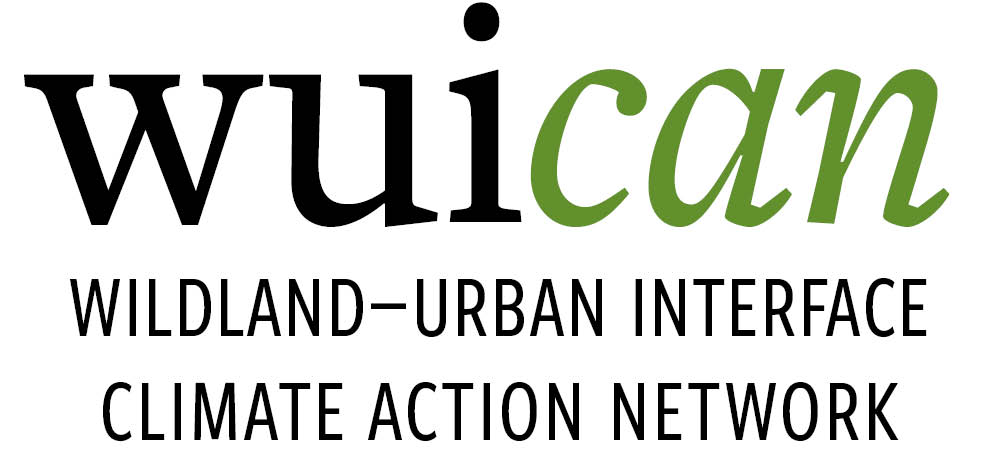
Jake Szabo
June 25, 2025
The landscape of Southern California is marked by its drastic variation from coastal to desert, urban to wild. Managing the balance between conserving biodiversity and utilizing ecosystems across disparate landscapes is the focus of Darrel Jenerette’s twenty-year research into climate change.
Darrel Jenerette is a Professor in the Department of Botany and Plant Sciences at UC Riverside, Principal Investigator for the Jenerette Lab, and Director of the Center for Conservation Biology. He investigates how ecological systems function across local and regional environments to address the challenges of achieving sustainability. Inspired by thinking about the ways that climate change impacts diverse communities, Jenerette’s research encourages equitable action for climate challenges.
Systems of interactions
Jenerette’s path to the field of ecology began with his undergraduate studies. Driven by his interest in systems of interactions, he switched majors from psychology to English and philosophy before eventually landing on biology with a focus on ecological systems. He completed his PhD at Arizona State University and a postdoc at the University of Arizona, beginning his research into urban ecology.
Jenerette’s research investigates “the intersection between heat vulnerability, vegetation availability and demographic distribution.” In 2004, he published his first entry into this subject, examining how heat in Phoenix is moderated by the amount of vegetation in a neighborhood. The study correlated areas with low income, less education and a higher proportion of ethnic and racial minorities with less vegetation and subsequently higher temperatures. The higher temperatures in these communities are detrimental to health, with Jenerette reporting in a subsequent study that “60% of the residents reported having a heat illness.”
During a climate project in Arizona, Jenerette had an eye-opening experience. When his project was brought to community organization meetings in South Phoenix, community members were more concerned with other issues like feeding their kids or having a job, dismissing climate issues that they were suffering from. Jenerette grasped how pervasive the issues of climate change were in marginalized communities dealing with many other challenges.
The innate value of biodiversity
As the Director of the Center for Conservation Biology, Jenerette is concerned with how and why we manage the wildland-urban interface. He breaks the wildland-urban interface into three axes: hazards, benefits and conservation. Jenerette gives the example of using a bulldozer to clear a line of vegetation, explaining the complex product of how we deal with wildfire through ecosystem services. While dozer lines reduce the spread of fire, they cause erosion, decrease water quality and damage the natural environment. The question for Jenerette is “how can we find management activities that reduce the tradeoff?”
Jenerette pushes back against assessing the wildland-urban interface through economic frameworks like ecosystem services. He believes that viewing the functions of ecological processes in terms of their benefits to humans does not account for the disservices provided by a biodiverse ecosystem. Negative products of biodiversity, such as ticks, diseases and fires are not factored into the monetary value of an ecosystem, thus, Jenerette rejects assigning an economic value to biodiversity. He states that quantifying the value of biodiversity is like “when people put dollar values on people’s lives.”
He describes the rationale to act as a conservationist as an “innate desire that biodiversity is reasonable, that we shouldn’t just trash the planet.”
Involving the community
Jenerette is creating tangible solutions to climate issues beyond his academic research. He is involved with a project in El Paso, Texas, funded by the National Science Foundation, developing tree planting toolkits with the goal of minimizing water investments and maximizing the cooling potential of green spaces. But planting trees to cool off a neighborhood is more difficult than it seems. “If you want to cool neighborhoods with vegetation, then you’re spending water,” Jenerette says. The Jenerette Lab’s research into urban heat is important because it shows the human cost associated with climate change.
As a member of the Wildland-Urban Interface Climate Action Network (WUICAN), the Jenerette Lab is working with community organizations to affect climate policy and action. A project with the California Natural Resources Agency is developing a resilience initiative tool for the Coachella Valley. By engaging with tribal partners to research carbon storage and identify what threats exist to endangered species, they hope to meet community needs.
Jenerette notes that though the traditional reward system of universities poses a major challenge to incorporating community organizations, “the broader communities are increasingly valuing community-engaged research and action.” Nonetheless, Jenerette maintains that finding a balance between distributing resources to labs conducting theoretical research and community organizations doing on-the-ground work is much needed. This question is at the heart of the WUICAN project.
Working with diverse communities, scientific and beyond, is rewarding for Jenerette. He expresses gratitude for the contributions of fellow researchers across UC’s, CSU’s and private institutions. “It’s really been great,” says Jenerette, “It allows us to take advantage of differences amongst our universities and who we have, and our geographic differences as well.” In studying the systems of interactions among the biophysically, societally and economically diverse regions of Southern California, Jenerette continues to explore how and why we must address climate change.
Jake Szabo is a senior English major at the University of California, Irvine. He is a 2024-2025 WUICAN Climate Communications Fellow with the University of California Humanities Research Institute (UCHRI).
WUICAN acknowledges our presence on the ancestral and unceded territory of the Acjachemen and Tongva Peoples, who still hold strong cultural, spiritual and physical ties to this region.
Contact:
Research Justice Shop
researchjustice@uci.edu
Join the WUICAN mailing list


Follow us